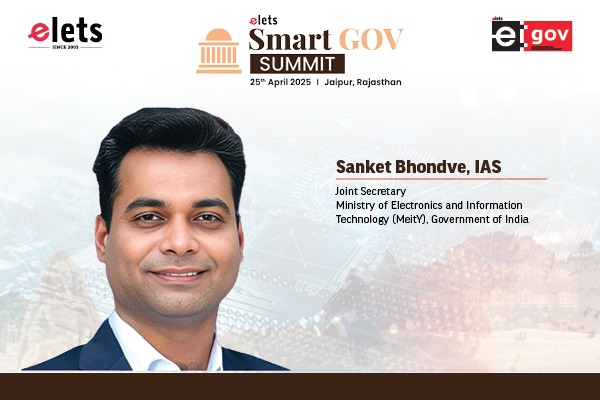
Uttar Pradesh (UP) is on the verge of a significant transformation as it sets a robust foundation to become India’s next big destination for Global Capability Centres (GCCs). By capitalising on its geographical advantages, extensive infrastructure, and abundant talent, the newly introduced GCC Policy 2024 emphasizes attracting global corporations to establish high-value service hubs in the state. These GCCs are pivotal for multinational corporations (MNCs) and are expected to fuel technological advancements across various sectors, including artificial intelligence (AI), data analytics, and cybersecurity. As UP aims for innovation-led growth, it is gearing up to play a decisive role in India’s booming digital economy.
The Rise of GCCs: an Indian Context

In the Indian context, GCCs have transcended their initial function as mere back-office units to emerge as integral parts of MNCs’ innovation and strategic operations. As asserted by the GCC Policy 2024, the GCC sector employs approximately 1.9 million professionals and is projected to reach a market value of $110 billion by 2030, establishing India as a global leader in this arena.

Originally focused on cost-effective tasks, these centres are now recognized as engines for high-value operations, driving advancements in AI, data science, and product development. The state’s ambitions align seamlessly with this national growth trajectory, positioning the state to capture a significant slice of the GCC industry.

Advantage Uttar Pradesh: the making of a GCC Destination

The GCC Policy outlines several core strengths that make the state an attractive destination for GCCs, including a large skilled workforce, strategic location, and fastdeveloping infrastructure. The state has made extensive industrial investments—amounting to the highest in India at ₹5.31 lakh crore over the past five years—which underscores its commitment to industrial development. Infrastructure projects such as the Ganga Expressway and several international airports, along with modern office spaces in Noida and Ghaziabad, provide an appealing setup for global companies. Notably, Noida’s emergence as a Data Centre and Semiconductor hub has already attracted significant investments from industry giants like Samsung and HCL.
In terms of human resources, the state boasts a vast talent pool, producing over 12.75 lakh graduates annually. Major institutions like IIT Kanpur and IIM Lucknow ensure a steady flow of skilled professionals ready to join the GCC sector. Notably, the state holds the highest concentration of employable youth, making it an ideal location for MNCs seeking qualified personnel for their capability centres.
The Uttar Pradesh Global Capability Centers (GCC) Policy 2024
The Uttar Pradesh Global Capability Centres (GCC) Policy 2024 presents an ambitious framework designed to position the state as a major hub for GCCs in India. This policy aligns with the rising demand for high-value business services from MNCs, propelling the state toward becoming an economically vibrant and strategically significant destination.
Introduction to GCCs and India’s Growing role
GCCs have evolved beyond their original roles as costsaving back-office units, becoming advanced operational centres for MNCs specializing in sectors such as AI, cybersecurity, and data analytics. Today, they play critical roles in providing high-value services, driving digital transformation, and fostering technological innovation. With India’s GCC industry projected to reach $110 billion by 2030, the state is strategically leveraging this growth potential by enhancing its infrastructure, talent pool, and business-friendly policies.
Strategic advantage of Uttar Pradesh for GCC Investments
Sectoral Scope and Specialization: The state has a strong presence in sectors ideal for downstream GCC operations, including software, technology, Banking, Financial Services, Insurance (BFSI), and healthcare. This makes the state an attractive location for MNCs seeking specialized, knowledge-intensive support centres. Notably, UP’s success in sectors like Electronics System Design and Manufacturing (ESDM) positions it as a key player in attracting technology-focused GCCs, with established companies like Samsung and HCL already making significant investments in the region.
Infrastructure Investments: Massive investments are reshaping the state’s infrastructure, with a record ₹5.31 lakh crore in capital expenditure over the past five years. Initiatives like the Ganga Expressway and Jewar Airport significantly enhance the state’s connectivity, supporting the operational needs of GCCs. The state’s commitment to world-class facilities is further evident with developments in the Noida region, home to a Semiconductor Park, Data Centre Park, and various specialized clusters. This infrastructure provides an ideal environment for establishing GCCs and advanced manufacturing facilities.
Comprehensive Talent Pool: Uttar Pradesh has the largest youth demographic in India, producing 12.75 lakh graduates each year. Its workforce is enriched by leading institutions such as IIT Kanpur, IIT-BHU, and IIM Lucknow, contributing to a consistent supply of skilled professionals. Moreover, the state’s skill development initiatives have equipped over 1.5 million youth with industry-relevant skills since 2014, ensuring a continuous flow of talent to meet the rising demand in GCC sectors. Combined with a workforce highly rated for employability, the state stands out as a prime location for companies seeking a skilled and affordable workforce.
Policy Framework and Strategic Objectives
The Uttar Pradesh GCC Policy is designed to make the state a leading destination for high-value digital services, creating a conducive ecosystem for innovation, research and development (R&D), and global competitiveness. The policy framework is guided by specific objectives that reflect the state’s commitment to economic growth and digital transformation.
Building World-Class Infrastructure: The policy emphasizes the need for infrastructure improvements, including the creation of Special Economic Zones (SEZs), technology parks, and enhanced transport networks, ensuring that GCCs have the necessary facilities to thrive.
Hub-Spoke Model for GCC Operations: Uttar Pradesh will implement a decentralized hub-spoke model, establishing satellite and outsourced centres in Tier II cities. This model enables GCCs to leverage regional talent, improve operational efficiency, and offer flexible work environments, ultimately maximizing their reach and impact.
Financial Incentives: The policy includes various financial incentives, such as tax exemptions, capital subsidies, and interest subsidies, designed to attract MNCs. Performance-linked incentives further promote job creation and technological advancements, making UP an appealing destination for GCCs.
Skill Alignment and Talent Development: Recognizing the critical need for skill alignment, the policy promotes curricula that meet the demands of high-tech industries, ensuring that graduates are equipped with the necessary skills to thrive in the GCC sector.
FISCAL SUPPORT AND INCENTIVES
The GCC Policy provides extensive fiscal incentives to attract investment and support business growth. These
incentives include:
Land Subsidies and Stamp Duty Exemptions: Frontend land subsidies of up to 50% are offered, along with full reimbursement of stamp duty for eligible units, significantly reducing setup costs.
Also Read :- Semiconductors Spark Economic Growth in Uttar Pradesh
CAPITAL AND OPERATIONAL SUBSIDIES
Companies can benefit from up to 25% capital subsidies on eligible investments, as well as operational expense subsidies, including reimbursements for lease rentals and bandwidth expenses. This financial support helps new and expanding GCCs optimize their operating expenses.
Payroll Subsidies and Talent Development: To attract talent further, the policy reimburses payroll costs and supports skill development programs, especially for local hires and underrepresented groups, including women and transgender employees. Additionally, the policy promotes fresher recruitment with subsidies that incentivize companies to create new jobs.
Non-Fiscal Support and Business Facilitation
Uttar Pradesh offers non-fiscal support aimed at facilitating smooth business operations beyond fiscal incentives. The Technical Support Group (TSG) acts as a bridge between GCCs and government departments, ensuring a seamless experience for businesses. This group provides comprehensive guidance on regulatory compliance, facilitates government-industry collaboration, and streamlines policy navigation. Additionally, the Nivesh Sarathi Investor Relationship Management Portal offers a single-window solution for managing business queries, grievances, and facilitation needs.
A Conducive Environment for Innovation and R&D
Uttar Pradesh envisions itself as a leading centre for innovation, providing support to GCCs engaged in research and development. To foster this environment, the policy offers grants for establishing Centres of Excellence (CoEs) and facilitates partnerships between GCCs and local academic institutions. This ecosystem is further enhanced by reimbursements for expenses related to patents and ideation programs, supporting companies in their intellectual property initiatives.
Regulatory ease and compliance simplification
The policy includes several regulatory relaxations that simplify operations for GCCs in the state. Eligible units receive exemptions from various state regulations, such as the UP Pollution Control Act, and benefit from reduced inspections under labour laws. A Floor Area Ratio (FAR) adjustment allows companies to maximize space usage for their operations, facilitating efficient workspace management.
Sustainability and risk Management
Sustainability is a priority within the GCC Policy, encouraging eco-friendly practices among GCCs. Risk mitigation frameworks address challenges like cybersecurity threats, geopolitical volatility, and shifting global markets, providing companies with a stable environment for operations. Furthermore, the state’s emphasis on green infrastructure promotes sustainable business practices, aligning economic growth with environmental responsibility.
Implementation framework and future outlook
The implementation of the GCC Policy will be managed by a dedicated Policy Implementation Unit (PIU) at Invest UP, overseen by an Evaluation Committee. The policy envisions a five-year rollout period, with only the state cabinet authorized to approve amendments. This structured implementation framework ensures that GCCs can access benefits seamlessly while maintaining compliance with the policy’s objectives.
Unlocking new Horizons with the GCC Policy
The Uttar Pradesh Global Capability Centres Policy 2024 reflects a transformative approach to economic growth, job creation, and technological advancement. Through a comprehensive blend of fiscal and non-fiscal incentives, robust infrastructure, and a business-friendly regulatory environment, the state is paving the way for a new era of GCC-driven innovation. This policy not only cements the state’s reputation as an emerging GCC destination but also strengthens India’s position as a global leader in digital services and technological expertise. The state’s focus on fostering a skilled workforce, driving infrastructure development, and supporting sustainable growth promises a bright future for the state as a premier GCC hub.
Be a part of Elets Collaborative Initiatives. Join Us for Upcoming Events and explore business opportunities. Like us on Facebook , connect with us on LinkedIn and follow us on Twitter, Instagram.
"Exciting news! Elets technomedia is now on WhatsApp Channels Subscribe today by clicking the link and stay updated with the latest insights!" Click here!













